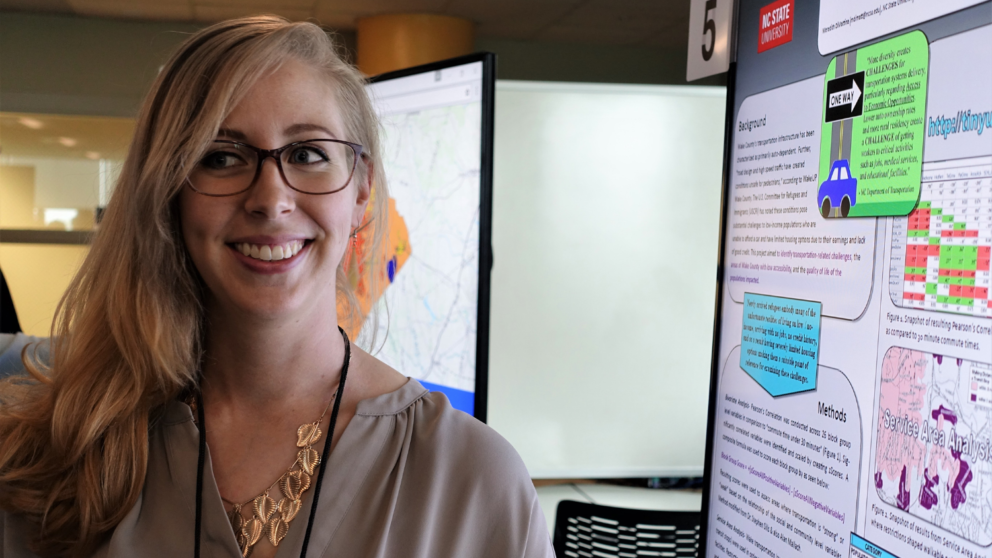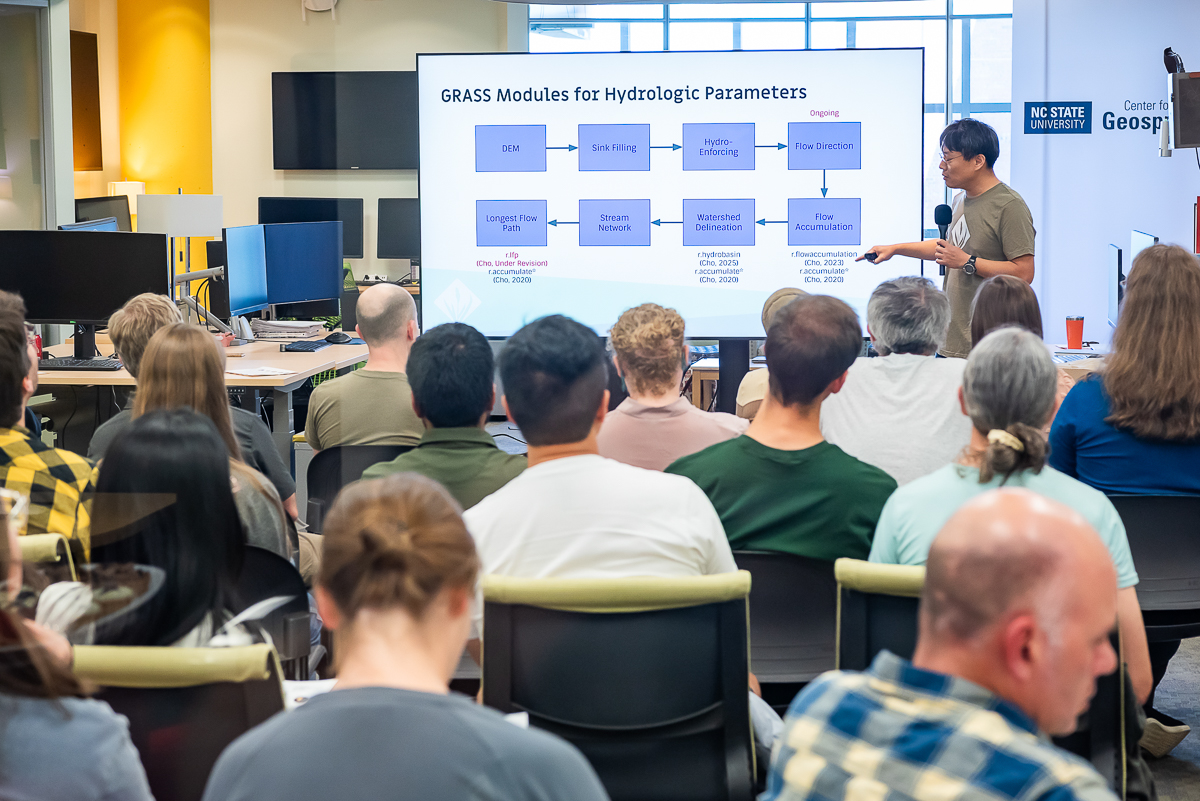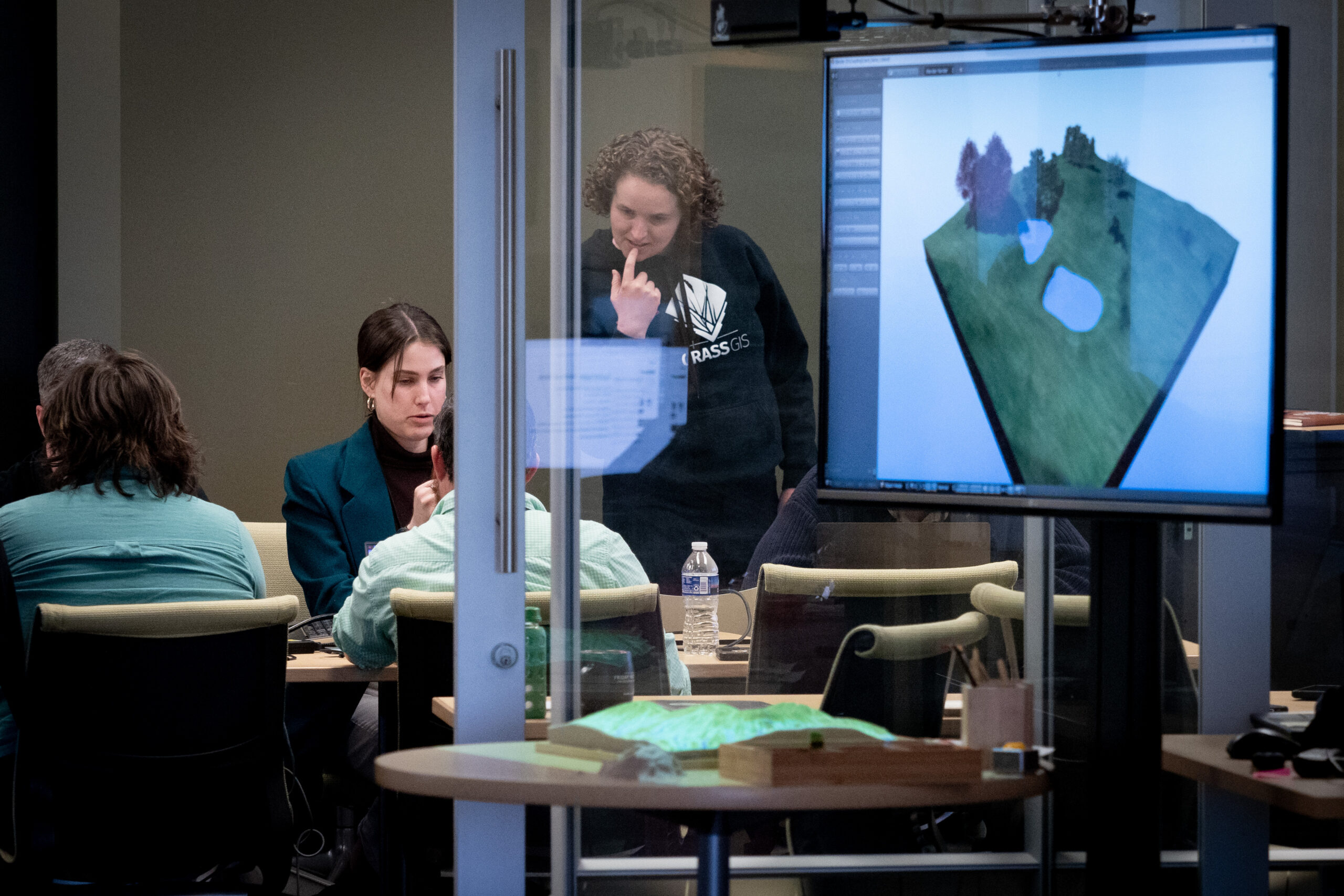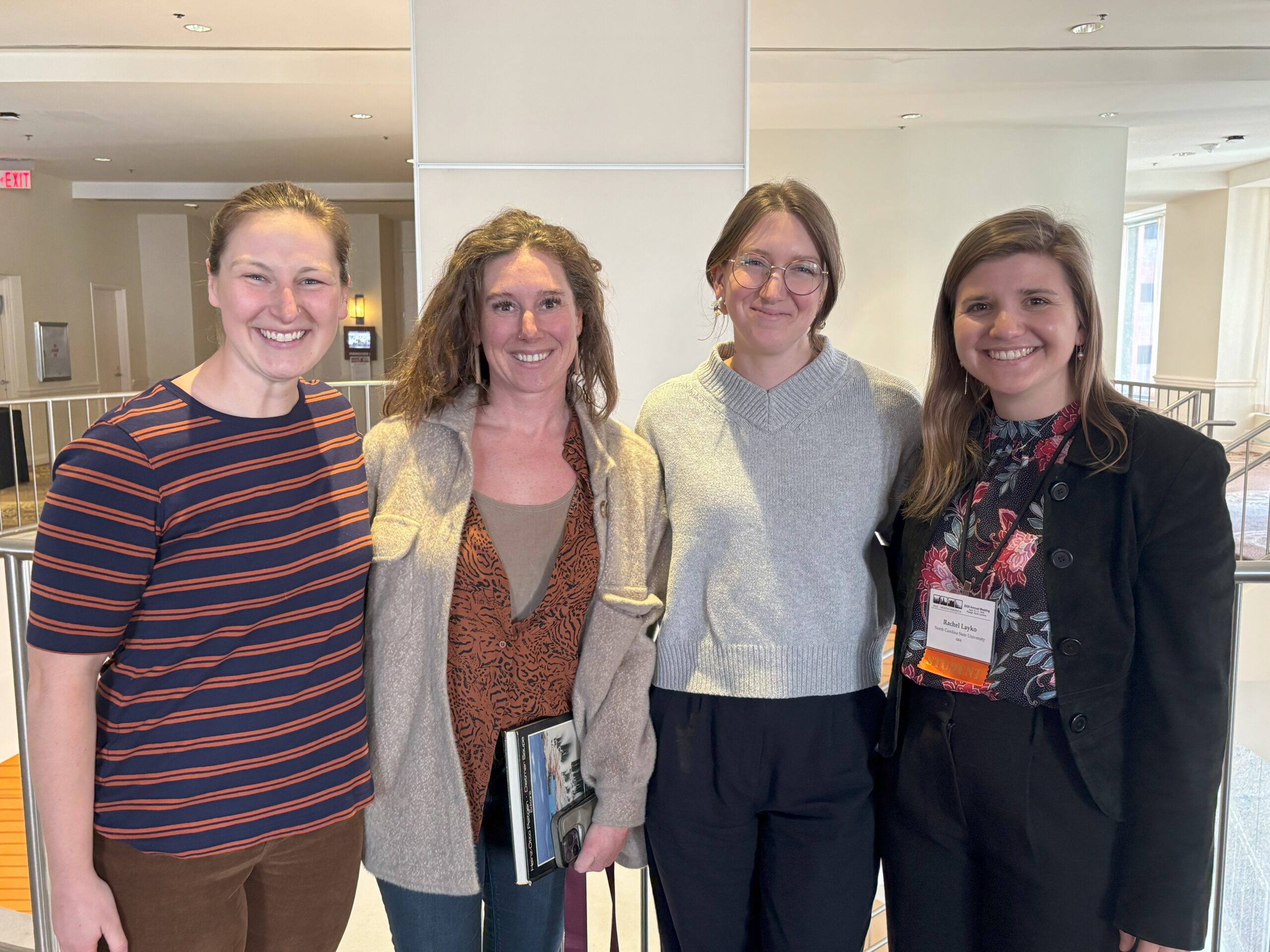MGIST Program Provides Solid Framework for Professional Growth


In 2015, Meredith DiMattina knew she wanted to enroll in the online Master of Geospatial Information Science and Technology (MGIST) program to gain the expertise and experience necessary for a strong professional career. What she didn’t expect were the collaborative relationships among her peers and engaging leadership from her professors.
Graduating from the online MGIST program in 2017, DiMattina’s degree has led her to become a GIS specialist for UNCG’s Center for Housing and Community Studies in Greensboro. “I also work part time for the Burlington Police Department and was their Crime Analysis Unit supervisor before returning for UNCG,” she says. “My work focuses on the spatial data and analysis used to eliminate barriers to healthy and safe communities.”
So, what led her to seek a degree from NC State?
“At the time I initially pursued the MGIST program, I was working in direct client services at a nonprofit in a grant funded position. I felt that to continue growing as a professional and to have more secure employment options, I needed to pair my soft skills with more technical knowledge. I had always loved geography and through my work with refugees became intimately familiar with how place is related to the social determinants of health and health outcomes. When I read the information about the MGIST program, I felt like it was exactly what I had been searching for, and I knew that having GIS skills would put me in a better position to make a positive impact on the community. NC State offers many resources to its students not available at other universities as well as in-person and online course options,” says DiMattina.
Prior to entering the online MGIST program, she had no GIS experience, so she began with the Graduate Certificate in Geographic Information Systems program. DiMattina was able to find courses including a broad range of specific topics focused on GIS.
“In addition, many of the courses had open-ended assignments which allowed students to pursue their own interests and tailor the program to the individual’s desired experience. For example, I focused my projects on human geography topics and transportation while others chose environmental topics, utilities, or disaster management. Some of the other things I appreciated were the amazing faculty and the exposure to a variety of open-source GIS software,” she says.
With DiMattina’s experience being mostly virtual, she had reservations about what online learning would look like. She was pleasantly surprised by how easily she could communicate and collaborate with other graduate students and professors.
“I found the online learning experience to be flexible and not as ‘distant’ as distance learning would imply. I was concerned that online courses in the program would feel impersonal, and I would feel disconnected from my peers and professors. This was not the case at all! There are many opportunities to connect with others in the program, collaborate on projects, learn what others are working on and come to campus for events,” shared DiMattina.
She found the skills necessary to complete her degree from a distance and was able to appreciate what digital education offered.
“Learning online requires a bit of self-motivation and discipline to stay on track since you set your own learning schedule, but dropping the commute gives you more time to complete work and do other things,” she says.
Managing the balance between her personal life, work-life and her education was a learning curve at first. DiMattina was able to find a rhythm that worked best for her experience in the program.

“Honestly, it was hard! At one point I had three part-time jobs along with the MGIST coursework and my family life,” she says. “Being able to study on my own schedule made the balance easier, and the distance learning gave me more time to work instead of commuting back and forth to class. While I stayed busy, the experiences I had during this time were some of the best in my life.”
Teaching Professor Perver Baran and Director of Recreation Resources Service Charlynne Smith provided a driving force that guided DiMattina through her educational journey. She shares how they intentionally guided and collaborated with her throughout the program.
“All of the faculty were fantastic and really made the experience special. The program faculty were very knowledgeable and made the learning experience engaging. I always felt like I could reach out when I had questions and that the program had an open line of communication with me. In particular, my advisor, Dr. Baran, checked in on me regularly. I will never forget the first time she called me on my cellphone to say “Hi.” It made me feel like they were invested in me and my success as a student. I also really enjoyed the Capstone project with Dr. Charlynne Smith, who did a great job at bringing the program full circle by helping students apply what they had learned in the program to solve real-world problems,” she says.
DiMattina’s decision to pursue a degree in the online MGIST program shaped her future career path by providing employment opportunities. She was able to approach interviews with knowledge and skills provided by the program.
“Without a doubt, the MGIST program gave me opportunities and opened doors for new career paths that would otherwise not have been available to me. I received a few unsolicited job offers from companies in my area who had heard I was completing the MGIST program, which led to my current employment which I am very grateful for. The portfolio I completed for the program was also a helpful tool for the job interviews I had after graduation,” says DiMattina.
The degree from NC State impacted her career by setting the groundwork for what she needed for her Geographic Information Systems Professional (GISP) certification.
“The MGIST degree lays a solid foundation for the GISP certification process, both in the education requirement and also in the exam. The exam covers materials from conceptual foundations and geospatial analysis to statistics, databases, and programming — all of which are covered in the MGIST curriculum. Pairing what I learned at NC State with the exam blueprint and a study group set me up for a positive GISP certification outcome,” she says.
With all DiMattina gained from her experience in the online MGIST program, she encourages others who are thinking about continuing their education to enroll in a master’s program at NC State. The digital education option allowed her to pursue her degree with the flexibility online learning offers.
“I would highly recommend the MGIST program and would suggest those in it maximize every opportunity that presents itself. Say ‘yes’ to new opportunities and extend your education beyond the classroom when possible. For me, this took the form of a GIS internship in transportation. I also got involved with the Urban and Regional Information Systems Association (URISA) and shadowed GIS professionals in different fields to learn more about what I wanted to do with the MGIST when I graduated. Through this experience, I found that people in the GIS field are often open to new connections. Some offered mentorship and guidance which was an invaluable addition to compliment the MGIST program,” she says.
Are you interested in pursuing your online master’s degree in Geospatial Information Science and Technology? Visit the program page or online.ncsu.edu/programs for a full list of degree and certificate programs.
This post was originally published in DELTA News.


